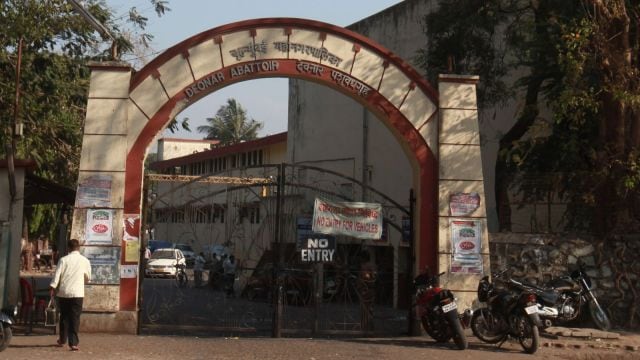Skill development centre to abattoir for poultry: How BMC plans to revamp country’s largest slaughterhouse in Deonar
Plan to upgrade capacity to cater to over 2.60 lakh animals and birds daily
 Established in 1971, the Deonar facility in the eastern suburbs handles processing and slaughter of a large volume of buffaloes, goats and pigs daily. (Express Archive)
Established in 1971, the Deonar facility in the eastern suburbs handles processing and slaughter of a large volume of buffaloes, goats and pigs daily. (Express Archive)From a brand new skill development centre to a new abattoir for poultry, the 54-year-old Deonar abattoir in Mumbai — India’s largest slaughterhouse — is set to be redeveloped and modernised.
The Brihanmumbai Municipal Corporation (BMC) , through the public private partnership (PPP) model, is eyeing to demolish and redevelop the existing abattoir structures well as establish new units for poultry along with ancillary works in a plan that is proposed to upgrade the capacity of the facility to cater to over 2.60 lakh animals and birds daily.
Established in 1971, the Deonar facility in the eastern suburbs handles processing and slaughter of a large volume of buffaloes, goats and pigs daily.
However, the decades of operations have taken a toll on the existing slaughterhouse.
Sprawling a total area of 44,45 acres, the modernisation plan seeks to redevelop the old buffalo, goat and pig abattoir sections as well as create a new abattoir for the slaughter of poultry birds.
The redevelopment plan seeks to increase the capacity of the existing buffalo abattoir to 1,100 buffaloes per day with a capacity of 550 buffaloes per shift, while the new goat abattoir is proposed to have a capacity of 10,000 animals per day and the pig unit is pegged to have a proposed capacity of 500 pigs.
The largest proposed capacity is pegged at 2.50 lakh birds for the new component of the poultry abattoir unit.
Meanwhile, the modernisation aspect seeks to upgrade the existing semi-modern structures with modern state-of-the-art and environmentally sustainable technology.
The USP of the project, officials added, is the establishment of a new skill development center within the abattoir premises which will offer educational courses on the subject of meat industry.
“Once constructed, we will rope in government or government recognised research institutes to offer educational courses and training for students on the subject of meat industry including subjects like product development,” a BMC official told The Indian Express.
Meanwhile, ancillary works ranging from creation of rendering units, sheds for animals, loading and unloading shafts as well as civil works within the compound are also proposed to be undertaken under the plan.
“The redevelopment will be carried out by demolishing the existing structures and creating additional sections for poultry abattoir. The work will be executed in such a manner that the existing operations of the abattoir will not be hampered,” the civic official said.
While the cost of the project will be determined by the private agency roped in for the works, civic sources said that the project work is estimated to be between Rs 250 and 300 crore.
Last week, the BMC floated a Request for Proposal (RFP) for development of pig, buffalo, poultry and sheep, goat abattoirs at the Deonar complex through the PPP model.
“Under the PPP model, the project will be executed through private investment while some civil works will be funded by the BMC such as the land development, upgradation of storm water drains, sewerage, roads amongst other civil amenities inside the abattoir. Meanwhile, the rest of the modernisation and redevelopment works of the facilities will be developed by the private agency,” the official added.
The fresh proposal comes nearly three years after the BMC in 2022 scrapped a Rs. 400 crore revamp plan for the Deonar facility after several legislators and former corporators from BJP pointed out discrepancies in the project and alleged cost-escalation and rigging of tenders.
Reviving the plan again amid rising urban demand for hygienic meat, the civic body said that the project is aimed at improving sanitation standards, reducing risk of zoonotic diseases and ensuring compliance with food safety norms.







